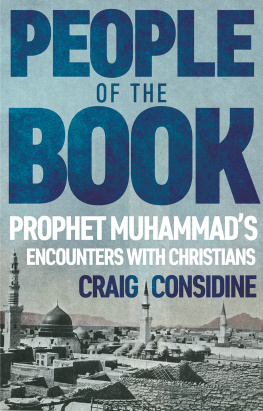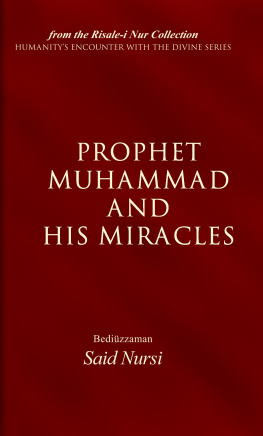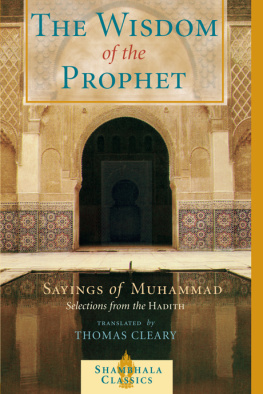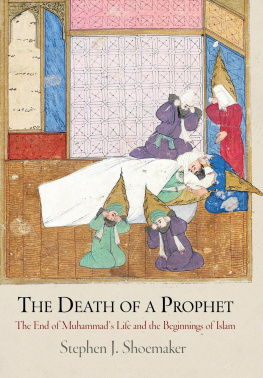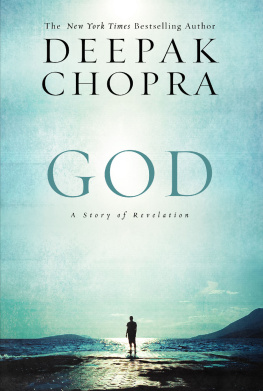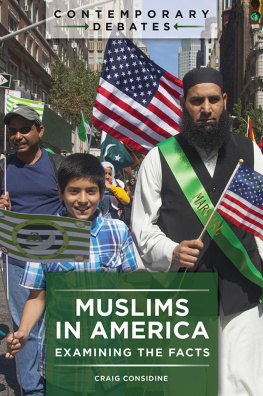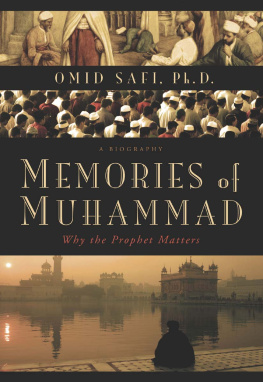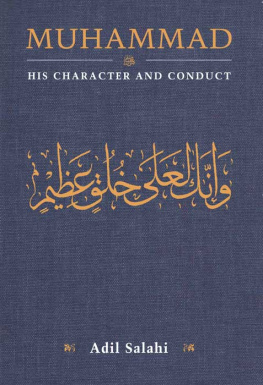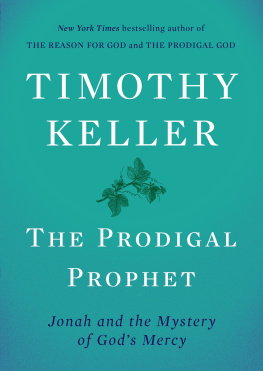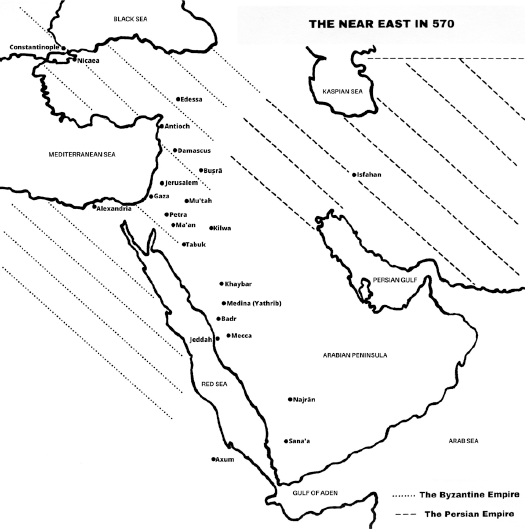Contents
Page List
Guide
PEOPLE OF THE BOOK
CRAIG CONSIDINE
People of the Book
Prophet Muhammads Encounters with Christians
First published in the United Kingdom in 2021 by
C. Hurst & Co. (Publishers) Ltd.,
41 Great Russell Street, London, WC1B 3PL
Craig Considine, 2021
All rights reserved.
The right of Craig Considine to be identified as the author of this publication is asserted by him in accordance with the Copyright, Designs and Patents Act, 1988.
Distributed in the United States, Canada and Latin America by Oxford University Press, 198 Madison Avenue, New York, NY 10016, United States of America.
A Cataloguing-in-Publication data record for this book is available from the British Library.
ISBN: 9781787384712
This book is printed using paper from registered sustainable and managed sources.
www.hurstpublishers.com
To His Holiness Pope Francis, for helping me reimagine my faith, and for serving as a bridge between Christians and Muslims.
Blessed are the peacemakers, for they will be called the children of God.
Matthew 5:9.
We have not sent you (O Muhammad) but as an unequaled mercy for all the worlds.
Quran 21:107.
CONTENTS
ACKNOWLEDGMENTS
I owe a debt of gratitude to several scholars whose works gave me direction and knowledge in designing this book, my seventh. Mustafa Akyols The Islamic Jesus: How the King of the Jews Became a Prophet of the Muslims (2017) provided insight into the dynamics of the early Christian Church and the sects of Christianity that arose out of Jerusalem in the first century. Several of Karen Armstrongs books on Muhammads life and legacy offered rich perspectives on his vision for the Ummah, including Muhammad: A Biography of the Prophet (1993) and Muhammad: A Prophet of Our Time (2006). Historian Juan Coles Muhammad: Prophet of Peace amid the Clash of Empires (2018) supplied a unique glimpse into Muhammads encounters with Christians, particularly in those associated with the Byzantine Empire. Fred M. Donners Muhammad and the Believers: At the Origins of Islam (2010) served as a key resource in understanding the inclusive nature of the early Islamic community in relation to the Believers as the People of the Book. The seminal Muhammad: His Life Based on the Earliest Sources (2006) by Martin Lings contributed invaluable material on the details of Muhammads actions and the trajectory of his life. Finally, Garry Willss What the Quran Meant and Why It Matters (2017) gave me plenty of inspiration in terms of engaging with the Islamic tradition as a Christian and academic aiming to write both an accessible and scholarly book.
LIST OF ILLUSTRATIONS
.
.
.
.
.
.
.
.
.
.
.
.
.
.
.
Map of the Near East in 570
GLOSSARY
ahadith/hadith | The Arabic words ahadith (plural) and hadith (singular) relate to the actions, advice, recommendations, and sayings of Muhammad, the prophet of Islam. |
Ahl al-Kitab | The Arabic word that translates as The People of the Book. The Quran refers to Jews, Christians, and Sabians as Ahl al-Kitab who had been given divine books before God revealed the Islamic sacred text to Muhammad starting in 610. |
Ahl al-Suffah | The Arabic phrase that translates to, The People of the Bench, a group named after the people that congregated at a stone bench near the colonnade of al-Masjid al-Nabawi. The People of the Bench were mostly farmers or tradesmen, such as Salman al-Farisiy. |
al-Ansar | The Arabic word that translates to the Helpers, the title Muhammad gave to the local inhabitants of Medina who welcomed him and his followers after they had migrated from Mecca in 615. |
al-Ameen | The Arabic word that translates to the Trusted One, the nickname that the Meccans gave to Muhammad when he was a boy. Muhammads nickname stayed with him into adulthood owing to his reputation as a trustworthy merchant. |
al-Habib | The Arabic word that translates to the Beloved, the phrase a person may use when speaking about a close friend or family member. |
Al-Lat | The Arabic word that refers to the pre-Islamic goddess worshipped around the Arabian Peninsula; worshipped in Mecca alongside Al-Uzza and Manat. |
Al-Masih | The Arabic name that translates to The Messiah. The Messiah is a reference to Jesus. |
Al-Madina
al-Munawwarah | The Arabic phrase that translates to The Enlightened City, the name that replaced Yathrib as the official name of the ancient city and location of the second migration. |
al-Muminun | The Arabic term that translates to the Believers; generally refers to Muslims specifically but also extends to other monotheistic believers in Muhammads prophethood. |
Al-Quds | The Arabic name for Jerusalem that translates to The Holy One. |
Al-Uzza | The Arabic word that refers to the pre-Islamic goddess worshipped around the Arabian Peninsula; worshipped in Mecca alongside Al-Lat and Manat. |
al-Sadiq | The Arabic word that translates to the Truthful one. |
Allah | The Arabic word that translates to God. |
Allahu akbar | The Arabic word that translates to God is Most Great, the phrase used by Muslims in prayers and as a general declaration of faith. |
amir | The Arabic word that refers to king or an aristocratic noble. |
an-saab | The Arabic word that translates to idols, the statues worshipped by pagans in the pre-Islamic period. |
aqib | The Arabic word that translates to final; it is also a nickname given to Muhammad as the final prophet of the monotheistic tradition as noted in the Quran. |
Ar-Rum | The Arabic word that translates to The Romans, the name the Quran uses to refer to the Byzantines or the Greeks; also the name of the thirtieth chapter of the Quran. |
as-salamualaykum | The Arabic greeting that translates to peace be unto you. |
asabiyya | The Arabic word that translates to social cohesion through solidarity across cultural, ethnic, and religious lines; first developed by Ibn Khaldun in Muqaddimah (1377). |
Augustus/Augusti | The Latin word that translates to majestic, the title given to Roman emperors. |
azzan | The Arabic term that refers to the Islamic call to prayer. |
badawah | The Arabic term that refers to the nomadic lifestyle found on the Arabian Peninsula. |

